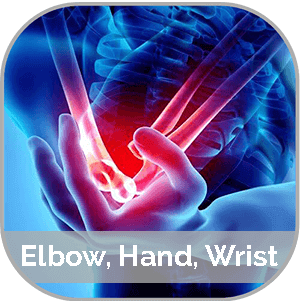Cubital Tunnel Syndrome occurs when the ulnar nerve, which runs from your neck down the inside of your arm into your hand, becomes compressed at the elbow. The cubital tunnel is a narrow space of bone, muscle, and ligament on the inside of the elbow. When swelling, inflammation, or prolonged elbow bending narrows this space, it puts pressure on the ulnar nerve, leading to symptoms that can affect your arm, hand, and finger function.
Causes and Risk Factors
Carpal Tunnel Syndrome can develop for many reasons, often involving a combination of factors that increase pressure on the median nerve. Repetitive hand or wrist movements, wrist injuries, arthritis, diabetes, thyroid disorders, and pregnancy-related fluid retention can all contribute. Certain occupations or hobbies that require prolonged or forceful hand use also increase risk.
Symptoms
Symptoms often begin gradually and may include numbness, tingling, or burning sensations in the thumb, index, middle, and part of the ring finger. You might notice discomfort at night or upon waking, weakness in your grip, and difficulty performing fine motor tasks such as buttoning a shirt or holding objects.
Diagnosis
Diagnosis typically involves a review of symptoms, a physical examination, and special tests that assess nerve function, such as nerve conduction studies or electromyography (EMG). Imaging may be ordered to rule out other causes of wrist or hand pain.
Treatment
Treatment can range from conservative measures to surgery, depending on severity. Non-surgical approaches include activity modification, avoiding prolonged elbow bending, using elbow pads, wearing a nighttime splint to keep the arm straight, and taking anti-inflammatory medications. If symptoms persist or worsen, surgical decompression or repositioning of the ulnar nerve may be recommended.
When to Seek Care
Early diagnosis and treatment are important to prevent permanent nerve damage and loss of function. If you experience ongoing numbness, tingling, or weakness in your hand or fingers, seek medical evaluation to determine the best course of action.



